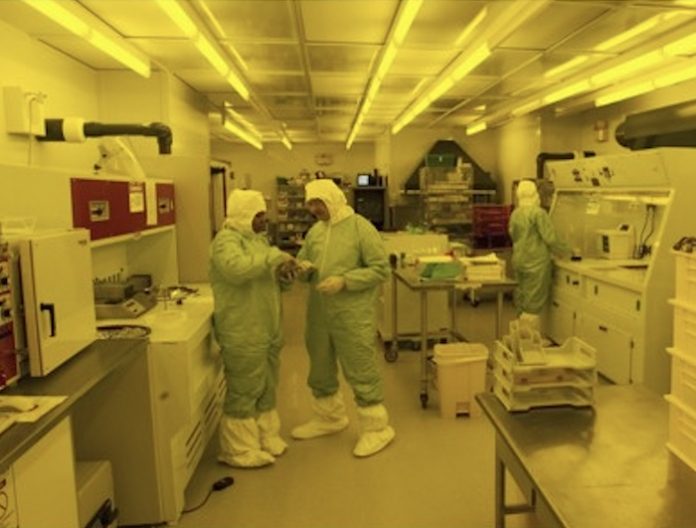
The Center of BioModular Multi-Scale Systems for Precision Medicine (CBM2), based at the University of Kansas, has received $6.6 million in new funding for the next five years from the National Institutes of Health (NIH) to continue its research into creating lab-on-a-chip devices for diagnostic and prognostic purposes.
Steven Soper, Foundation Distinguished Professor of Chemistry, Mechanical Engineering and Bioengineering at the University of Kansas, helped found CBM2 when he moved to the University in 2016.
It is a ‘P41’ center, a system set up to help recognize and accelerate the development of new biomedical imaging and bioengineering technology around the U.S. Overall, there are 50 such centers around the country, but CBM2 is the only one in an Institutional Development Awards state, a designation to indicate states with lower-than-average amounts of NIH funding.
CBM2 has focused on developing cutting edge microfluidic and nanofluidic devices, such as the lab-on-a-chip technology. This sort of technology has a variety of uses, but a key one is use for diagnostic purposes for infectious disease pathogens such as SARS-CoV-2 or cancer. For cancer patients, these types of devices can not only help to diagnose cancer early, but also help examine tumor cells and gain insights into the best treatments available and therapeutic responses over time.
“We develop little $2 widgets made from a plastic by injection molding that can take a liquid biopsy sample and search for different types of markers that can help a physician manage disease,” explained Soper in a press statement.
“To give you an example, this little chip is used to isolate tumor cells out of the blood of cancer patients. A physician will take a sample of blood from the patient, put it into the chip to enrich the tumor cells from the blood sample—there’s very few of them, maybe about 10 or so—and then we open those cells to look at the genetic composition to help decide: does the patient have a disease, how to treat the disease, is the patient responding to therapy?”
CBM2 collaborates with a number of different companies and organizations to develop the chips. For example, med tech companies like San Diego-based BioFluidica, which produces instruments for the isolation and analysis of liquid biopsy markers.
The Center also has a number of academic collaborations both in Kansas and elsewhere. The Kansas Institute for Precision Medicine (COBRE) is working with CBM2 to create diagnostic devices for infectious diseases and also ovarian cancer. There is also a project with a group from SUNY Downstate Medical Center in New York City to develop a point of care test for ischemic stroke.
“This exciting technology has the potential to improve and save lives, and this NIH funding renewal is both an endorsement of its value and a catalyst for its continued development and expansion,” said Simon Atkinson, vice chancellor for research on KU’s Lawrence campus.











